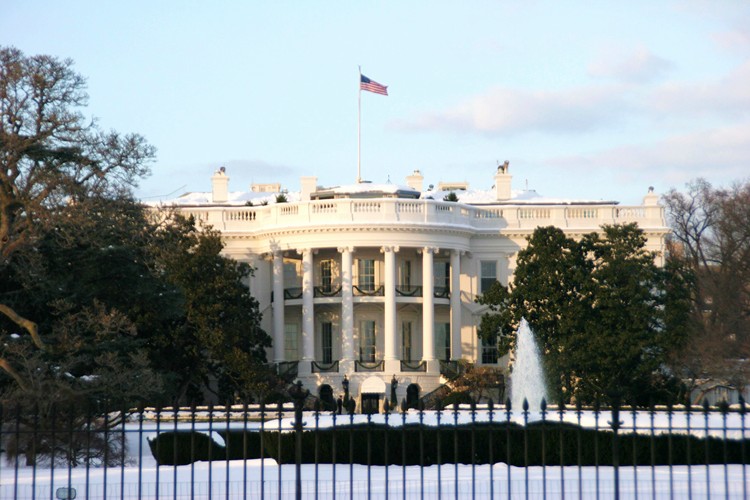 The Burj Dubai, the tallest building in the world, opens tomorrow. The Chicago Tribune reports on its historical debt to Chicago:
The Burj Dubai, the tallest building in the world, opens tomorrow. The Chicago Tribune reports on its historical debt to Chicago:
[T]he Burj Dubai has a broader -- unmistakably global -- significance for Chicago, which invented the skyscraper in the 1880s, pioneered supertall structures in the mid-1960s and had bragging rights to the world's tallest building title from 1974 to 1996, when Sears (now Willis) Tower wore the crown.
These days, the city's cloud-busting architectural achievements aren't simply found in the downtown blocks girdled by the rough-edged steel structure of the "L." They're spread across the world, from Dubai to Shanghai and beyond.
"From the foundation established in Chicago, that legacy is now being exported to other countries," said Joseph Rosa, the Art Institute of Chicago's architecture and design curator.
The article goes on to laud Adrian Smith, the building's chief architect. It's good to remember, though, that Chicago invented the skyscraper, and led the world for decades. But we're content to let the young upstarts have their fun. Look upon their works, ye mighty, and despair.
Once again, a major American newspaper has reported on something as universal fact, but that only makes sense in the U.S.:
The day is a palindromic date: 01-02-2010, meaning the number can be read the same way in either direction.
There will be 12 palindromic days this century, [Aziz Inan, a professor of electrical engineering at the University of Portland in Oregon,] said, and Saturday is the second. The first was 10-02-2001. (To check out his complete list: faculty.up.edu/ainan/palindrome.html)
Well, only here. Almost everywhere else in the world, people use different formats for dates. In Europe, for example, today is 2/1/10; the next "palindrome" date is February 1st (01-02-2010), and the last was 10 February 2001 (10-02-2001).
Except maybe not. Most people don't customarily use leading zeroes when writing dates. That makes today 2/1/10 most places, and means the next "palindrome" really won't be until 1/1/11. Or 11/1/11. Or 11/11/11. (20-11-2011? What manner of numerical silliness will that date cause people?)
Don't even get me started on International System measurements and American exceptionalism[1]. But it's the same idea.
In his defense, Prof. Inan isn't serious (and neither am I): "Despite Inan's excitement, he dismisses the notion that mysticism and magic lie behind such dates. He doesn't, for example, fear Dec. 21, 2012, the date the Mayan "Long Count" calendar marks the end of a 5,126-year era. Some folks think the date portends a revolution or an apocalypse. Jan. 2, 2010, and Dec. 21, 2012, he said, just happen to be really cool dates."
[1] There are 310 million people in the U.S. of 6.5 billion worldwide—we're 1/19th of the world population—and the only country including England who still use the English system of measurements.
Not only does Ben Gurion Airport have, by every measure, more effective security than at U.S. airports, but they move passengers through more quickly, too:
Despite facing dozens of potential threats each day, the security set-up at Israel's largest hub, Tel Aviv's Ben Gurion Airport, has not been breached since 2002, when a passenger mistakenly carried a handgun onto a flight. How do they manage that?
The first layer of actual security that greets travellers at Tel Aviv's Ben Gurion International Airport is a roadside check. All drivers are stopped and asked two questions: How are you? Where are you coming from?
"Two benign questions. The questions aren't important. The way people act when they answer them is," [Rafi Sela, the president of AR Challenges, a global transportation security consultancy] said.
Officers are looking for nervousness or other signs of "distress" — behavioural profiling. Sela rejects the argument that profiling is discriminatory.
In other words, more emphasis on people, less on technology. Will body scanners protect us against the next idiot who tries to blow up an airplane? Maybe; but watching people is probably more effective. Says Sela:
"First, [Israeli security is] fast — there's almost no line. That's because they're not looking for liquids, they're not looking at your shoes. They're not looking for everything they look for in North America. They just look at you," said Sela. "Even today with the heightened security in North America, they will check your items to death. But they will never look at you, at how you behave. They will never look into your eyes ... and that's how you figure out the bad guys from the good guys."
That's the process — six layers, four hard, two soft. The goal at Ben-Gurion is to move fliers from the parking lot to the airport lounge in a maximum of 25 minutes.
Instead, we're investing in body scanners, which have created a completely different kind of idiocy:
We're willing to ethnically profile, do all sorts extra-judicial surveillance, maintain massive databases of hundreds of thousands of people who have some vague relationship to extremism, torture captives, condemn people to hours unable to go the bathroom on planes, even launch various foreign military adventures, but when it comes to submitting to a quick scan that might show a vague outline of boobs or penises (almost certainly no more than is exposed in most bathing suits), that's a bridge too far.
Something about that doesn't compute to me. And what I like about this is that there's no clear partisan division on this one. Everyone seems to agree. It just tells me that at some level we're not really serious about this.
No, we're not really serious about this. It's theater. And it will continue until enough people care more about security than silliness.
Do you have the feeling you're no better off today than you were ten years ago? That's because, probably, you aren't:
It was a decade with basically zero job creation. ... And private-sector employment has actually declined — the first decade on record in which that happened.
It was a decade with zero economic gains for the typical family. Actually, even at the height of the alleged “Bush boom,” in 2007, median household income adjusted for inflation was lower than it had been in 1999. And you know what happened next.
It was a decade of zero gains for homeowners, even if they bought early: right now housing prices, adjusted for inflation, are roughly back to where they were at the beginning of the decade.
...
What was truly impressive about the decade past, however, was our unwillingness, as a nation, to learn from our mistakes.
Happy new year!
Sullivan thinks the President has done extremely well:
The substantive record is clear enough. Torture is ended, if Gitmo remains enormously difficult to close and rendition extremely hard to police. The unitary executive, claiming vast, dictatorial powers over American citizens, has been unwound. ... Domestically, the new president has rescued the banks in a bail-out that has come in at $200 billion under budget; the economy has shifted from a tailspin to stablilization and some prospect of job growth next year; the Dow is at 10,500 a level no one would have predicted this time last year. A stimulus package has helped undergird infrastructure and probably did more to advance non-carbon energy than anything that might have emerged from Copenhagen. ... Relations with Russia have improved immensely and may yield real gains in non-proliferation; Netanyahu has moved, however insincerely, toward a two-state solution; Iran's coup regime remains far more vulnerable than a year ago, paralyzed in its diplomacy, terrified of its own people and constantly shaken by the ongoing revolution; Pakistan launched a major offensive against al Qaeda and the Taliban in its border area; global opinion of the US has been transformed; the Cairo speech and the Nobel acceptance speech helped explain exactly what Obama's blend of ruthless realism for conflict-management truly means.
The Beltway cannot handle all this. And that's why they continue to jump on every micro-talking-point and forget vast forests for a few failing saplings.
But when you consider the magnitude of shifting from one conservative era to one in which government simply has to be deployed to tackle deep structural problems, the achievement is as significant as his election year.
People have a hard time grasping everything that the President has accomplished because people have short attention spans. But when we look back on his first year from 2020 or 2030, it will be obvious.
Once again in Reagan National Airport, our hero pauses to reflect on the great pile of snow that landed on the city three days earlier. I have to say, it really is pretty:

Another view, around back:

We even got delayed for 15 minutes by a motorcade: not the President's, the Vice-President's. Still, I feel like I've had the full D.C. experience.
Forty minutes until boarding...then I get to pass through O'Hare for the third time in five days.
What is it with U.K. rail? One would think the wrong type of snow would no longer stop an entire train line, but the snow struck again:
IT'S NOT the snow that shut down Eurostar. It's the type of snow. "Fluffy" snowflakes got through special screens and into the power cars of five trains on Friday, shorting out the engines and stranding thousands of travellers in the Channel Tunnel for hours. Service remains cut by a third, and normal service will not resume before Christmas. Some 100,000 people have had their travel plans fouled up, by the Times' count.
... Nicolas Sarkozy, the French president, has ordered Eurostar to get its trains running again.
Airlines are charging up to £499 to fly between London and Paris until Eurostar gets things sorted.
My question: how exactly did it snow in the Chunnel?
Laredo (pop. 250,000) will shortly have no bookstores, making it the largest city in the U.S. without one:
The Associated Press reports that letters from schoolchildren had no effect on the corporation's decision to shutter the B. Dalton; Barnes & Noble announced plans earlier this year to close all remaining B. Dalton outlets. "Corporate America considers Laredo kind of the backwater," said Jerry Thompson, an author who lives in Laredo and is a professor at Texas A&M International University.
Barnes & Noble, however, says it does think that Laredo can support a bookstore. It has its eyes on a site for a "large format" Barnes & Noble -- but that won't be ready until 2011.
With no independent bookstores in the city and the last chain outlet slated for closure, residents will have to travel about 150 miles across arid ranchland to San Antonio to buy books.
Unless they have an Internet connection, that is.
Still. I think some inferences about Laredo are warranted from this fact.
Krugman has a good summary:
[T]he belief that lower wages would raise overall employment rests on a fallacy of composition. In reality, reducing wages would at best do nothing for employment; more likely it would actually be contractionary.
Here’s how the fallacy works: if some subset of the work force accepts lower wages, it can gain jobs. If workers in the widget industry take a pay cut, this will lead to lower prices of widgets relative to other things, so people will buy more widgets, hence more employment.
But if everyone takes a pay cut, that logic no longer applies. The only way a general cut in wages can increase employment is if it leads people to buy more across the board.
Really, employment won't rise until after the fundamentals get better, and general wages have very little to do with it.
Specific wage decreases do have specific effects; however, smart employers avoid offering significantly lower wages to higher-skilled workers because they don't want those workers to leave as soon as conditions improve.